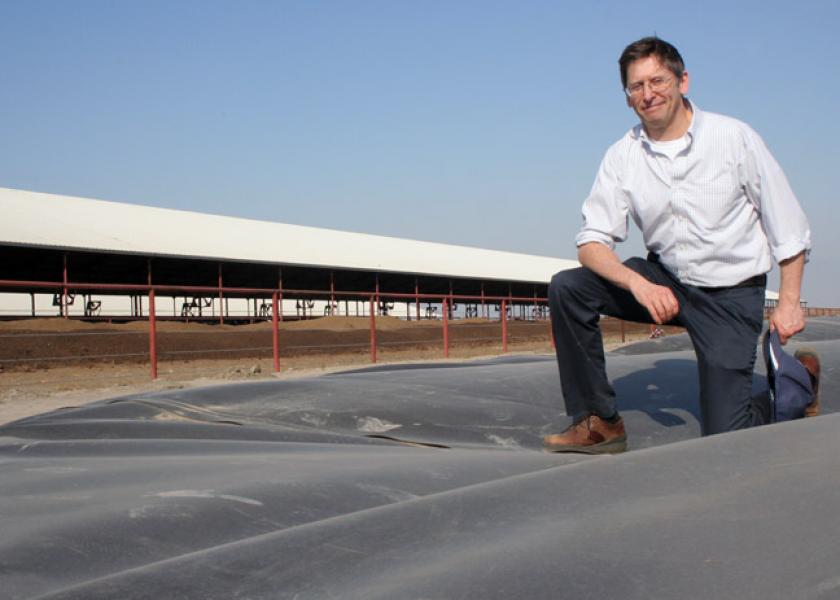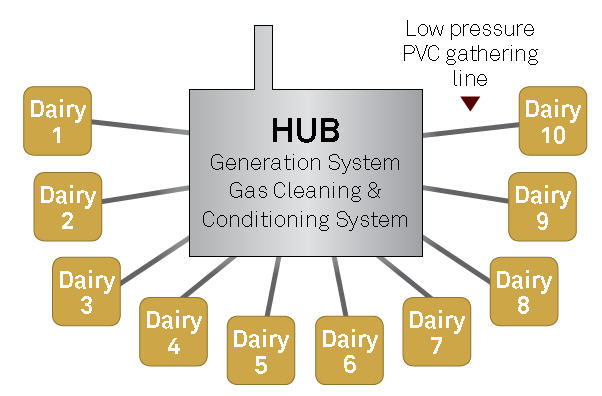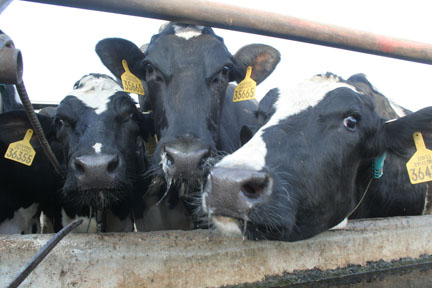Two Steps Forward for Dairy Digesters

Two California dairies win state grants to build innovative, energy-producing biogas projects.
The California Energy Commission (CEC) has granted two San Joaquin Valley dairies $4 million each for innovative biogas projects that will generate electricity, reduce methane emissions and, in the case of one, help launch the state’s first “hub-and-spoke” dairy digester cluster.
Lakeview Farms Dairy of Bakersfield, Calif., and West Star North Dairy of Buttonwillow, Calif., were the only two dairies among the six renewable energy research projects awarded in March by the CEC, the state’s primary energy policy and planning agency. The six awards, totaling nearly $14 million, followed a competitive application process.
The dairy projects are slated to start this month and reach completion by March 2019. The electricity from both dairy’s digesters will head to PG&E, California’s largest energy utility.
Developer California Bioenergy--working through its American Biogas subsidiaries--will finance, design, build, own and operate both projects in partnership with the two dairies. The specially formed entities will match the grant-funding for each project.
“These projects aim to generate and sell renewable electricity to either PG&E through long-term energy contracts or to the dairy via Net Energy Metering programs, helping to achieve the state’s renewable energy goals and making dairy digester, renewable energy projects more affordable,” says Gina Barkalow, CEC grant manager for the projects.
 |
| As part of the state’s first “hub-and-spoke” dairy digester cluster, the Lakeview Farms project will install a 1 megawatt generator and prepare a platform to accept future biogas from neighboring dairies. |
The two biogas ventures are designed for maximum capture and destruction of methane, helping to achieve the state’s greenhouse gas reduction goals, CEC says. California’s Renewable Portfolio Standard has set a target of 33% renewables by 2020. A new bill would increase the renewable procurement target to 50% renewables by 2030.
Both biogas projects will help investor-owned utilities “address the challenges posed by the intermittency of other renewable sources of energy, such as wind and solar,” says Cal Bioenergy’s Neil Black.
Lakeview and West Star North are flush-dairy operations that produce large volumes of manure water.
Using a covered-lagoon digester to process manure into biogas, the 7,000-cow Lakeview Farms will generate renewable electricity for export to PG&E’s electricity distribution grid. Located within an eight-mile radius of 11 other dairies south of Bakersfield, the Lakeview project will help launch the state’s first “hub-and-spoke” dairy digester cluster.
“The project will install a 1 megawatt generator and, at the same time, put in place a platform to accept future capacity, utilizing biogas from neighboring dairies,” Black says.
The hub-and-spoke approach for this cluster was initially examined in a USDA study on the economic feasibility of dairy digesters in California. “The idea is to allow the dairies to benefit from the aggregation of capital investment and reduce operation and management costs by centrally locating the generators and associated electrical equipment,” says Black.
West Star North Dairy, 35 miles north of Lakeview Farms, is home to more than 7,000 milking cows, replacement heifers and dry cows. Like Lakeview, West Star North’s biogas project will include a covered-lagoon digester and a 1-megawatt generation system.
One of two unique aspects of the West Star North project is its planned double-cell digester system. Two covered lagoons--one fixed, the other variable volume--will lie yards apart from each other. Manure water will flow sequentially from the first into the second lagoon. This system will enable wastewater quantity to vary by time of year as well as allow for the potential of co-digestion to increase biogas output. Only one other California dairy digester project, at the Bidart Old River Road Dairy near Bakersfield, has a double-cell, covered-lagoon digester system. Located near Lakeview Farms dairy, that project also was developed by CalBioenergy.
“The West Star North project will improve dairy operations and reduce dairy costs by advancing lagoon digester design,” Black says. “It will use the same design innovations to potentially retire the existing storage lagoon, an approach developed with 4Creeks, a dairy-focused engineering firm.”
 |
| Manure from both dairies' cows will supply the digesters, which ultimately will generate electricity for PG&E. |
A second innovative feature will prime West Star North for a future where energy storage on the farm is possible. Over the next year, the project will prepare its generator platform to add a second megawatt. That will allow West Star North to become one of the first dairies to participate in the state’s AB 2514 energy storage program. That 2010 landmark legislation was designed to increase the use of energy storage systems.
“We are readying West Star to compete in this program at a future date,” Black says. “If successful, it would provide a new revenue stream. Participation would mean that the utility is able to ‘dispatch’ or control an engine generator, starting electricity generation when they need it.”
With the State of California on board, the two dairy projects have a solid vote of approval. Moreover, the different approaches of each will showcase the viability of biogas efforts, “proving the benefits and setting the standard for future dairy digesters in California,” Black says.
U.S. Dairy Digester Portfolio
The two new biogas ventures near Bakersfield will boost California’s dairy digester numbers to 22, but the nation’s top dairy state still lags behind three other states in biogas projects.
Among the 202 anaerobic digesters commercially operating on U.S. dairies as of January 2015, the following states have the highest number, according to the Environmental Protection Agency’s AgSTAR program:
More than 80% of all commercial anaerobic digesters in the U.S. are located on dairies. Of those, most are plug-flow digesters, complete-mix systems or covered lagoons.
The U.S. swine industry accounts for the second-highest number of commercial anaerobic digesters, with 39.







